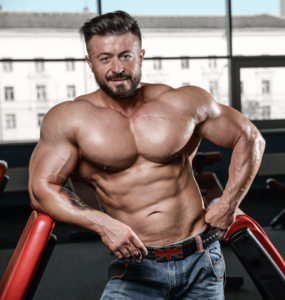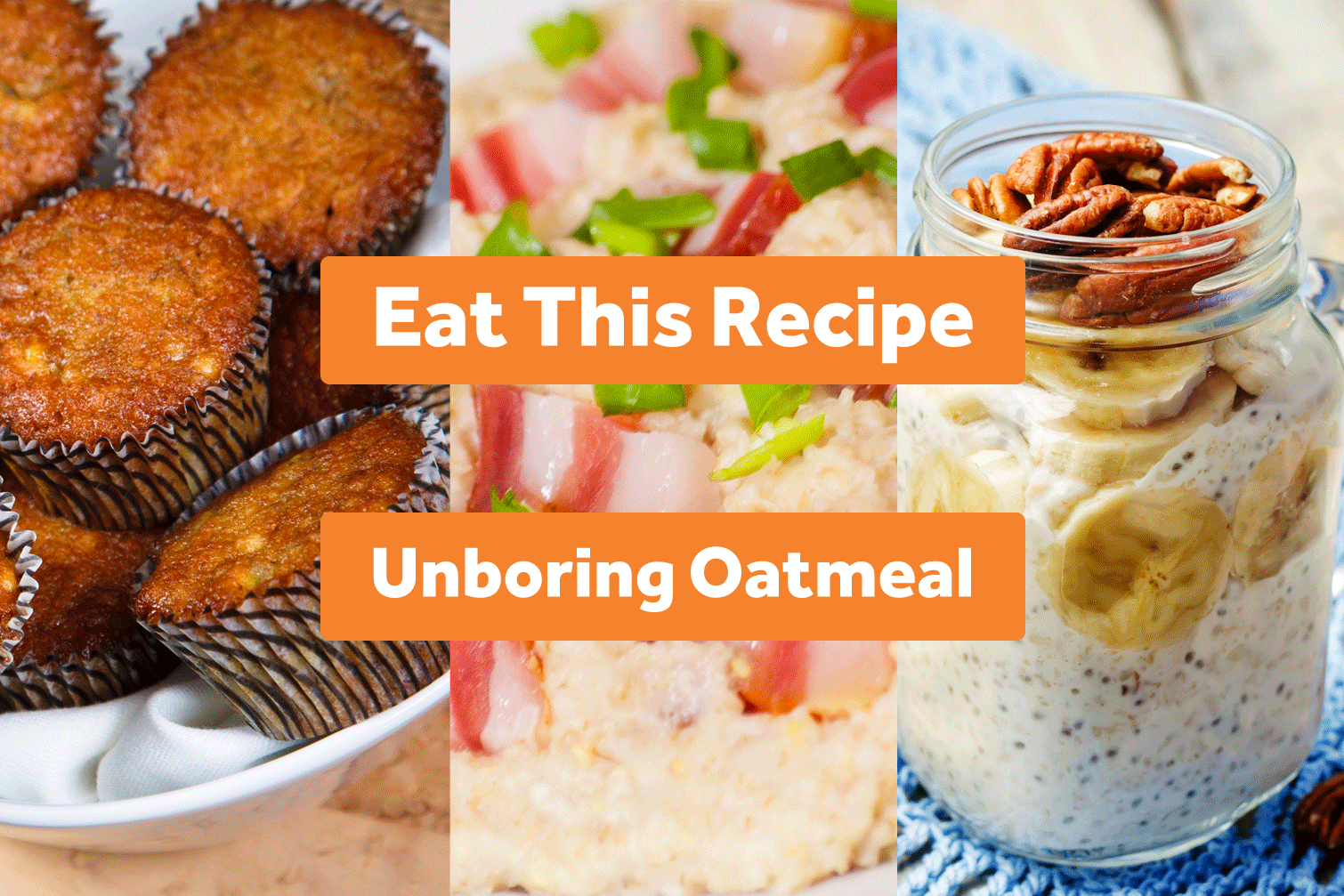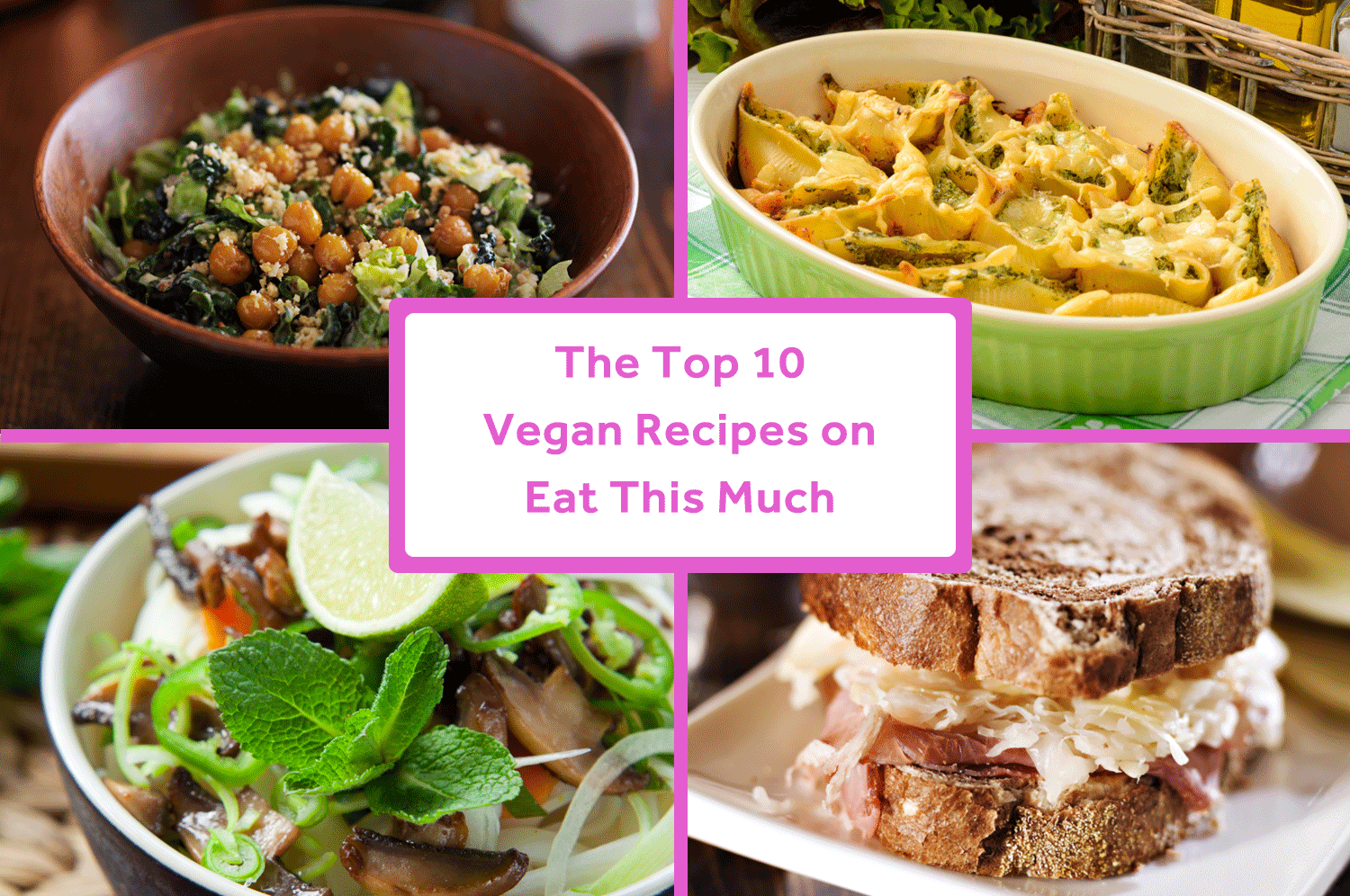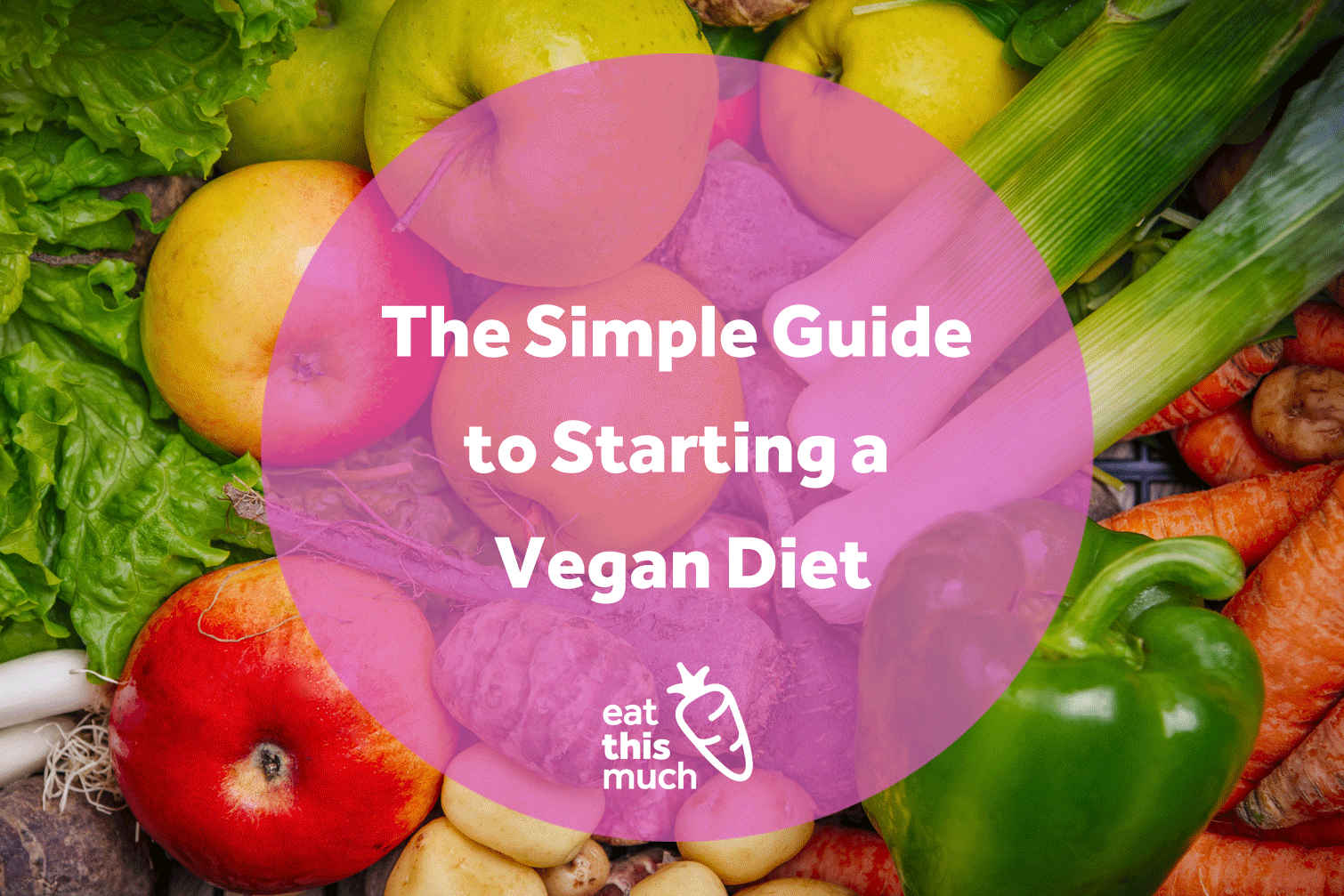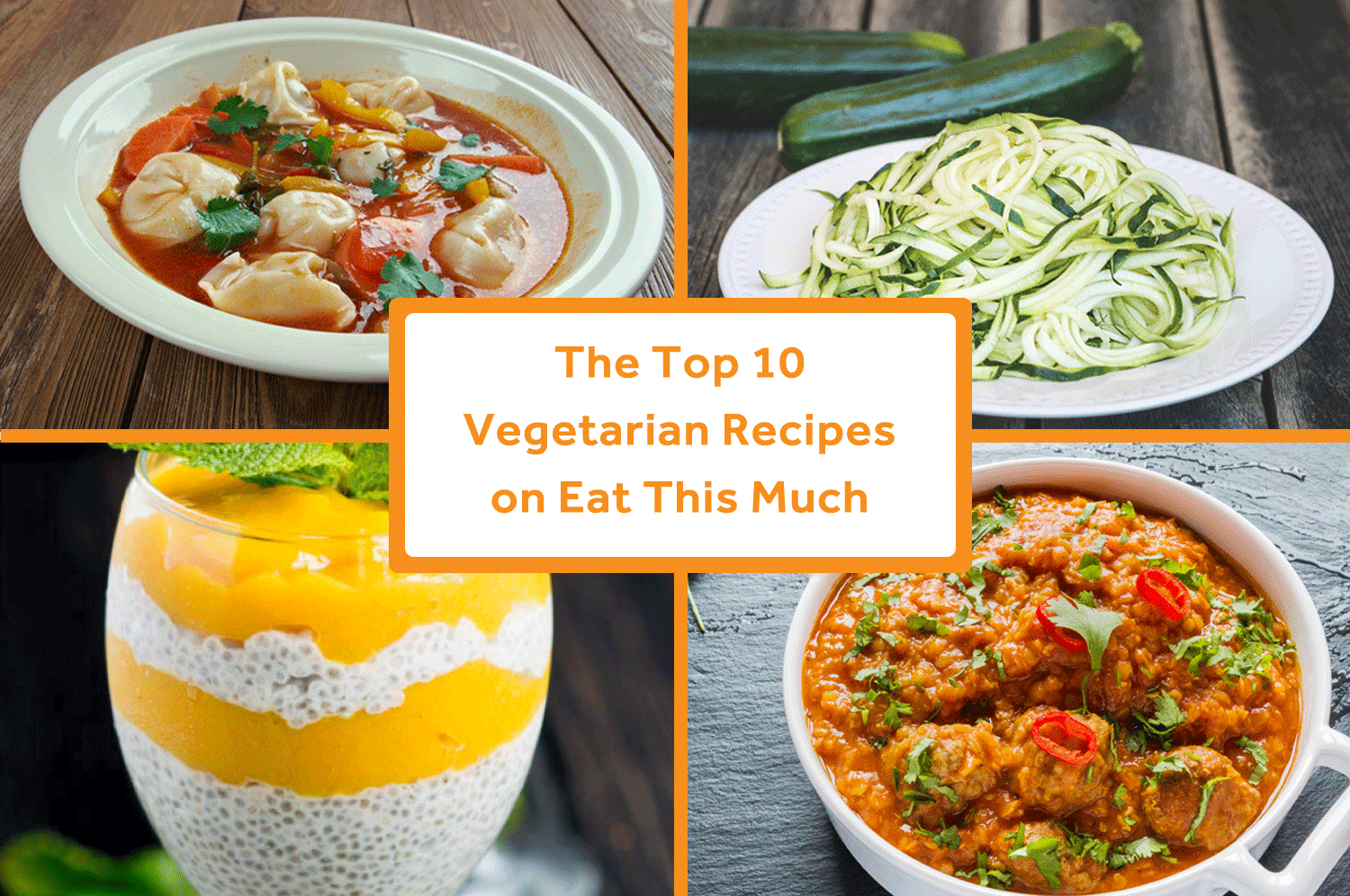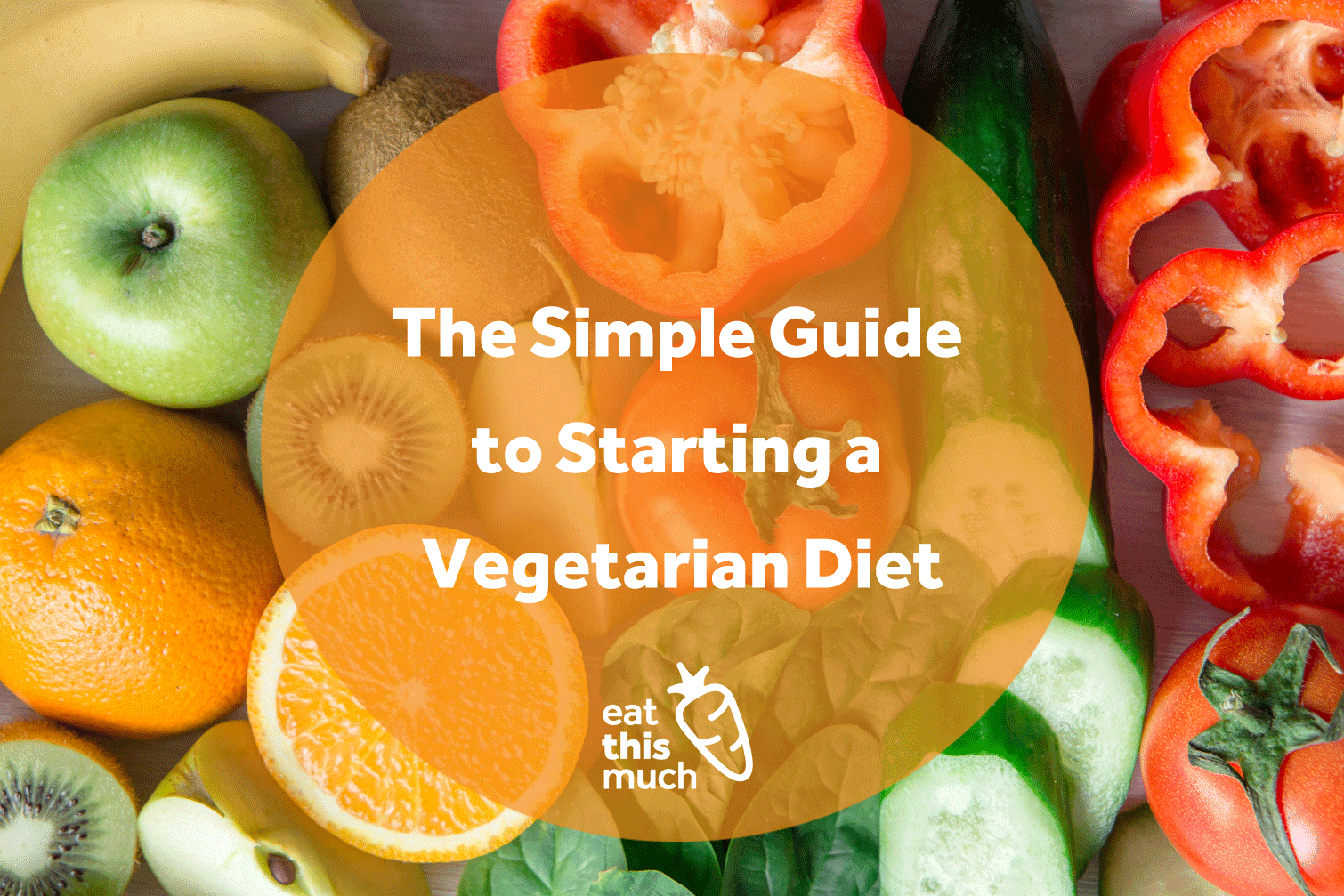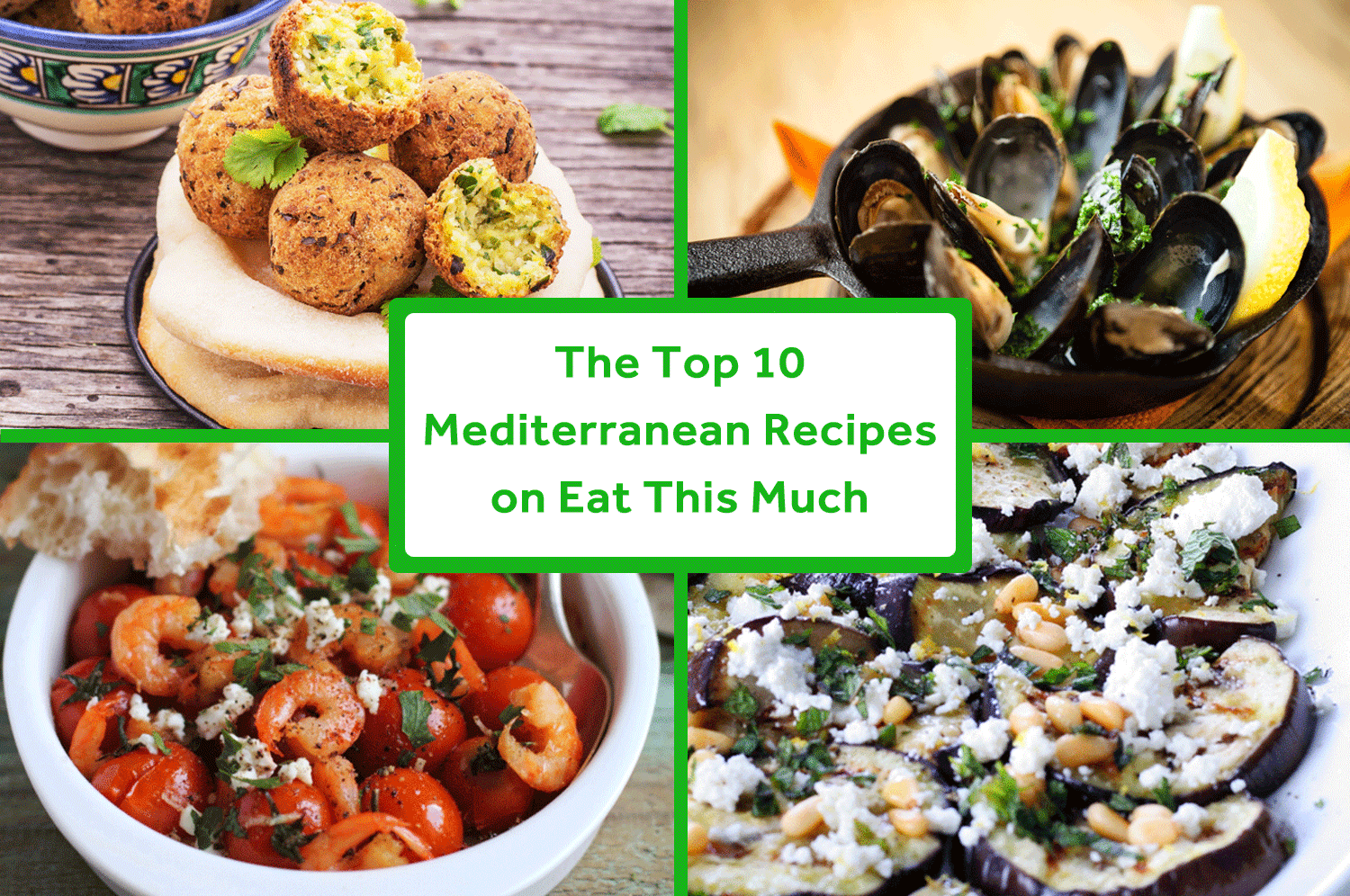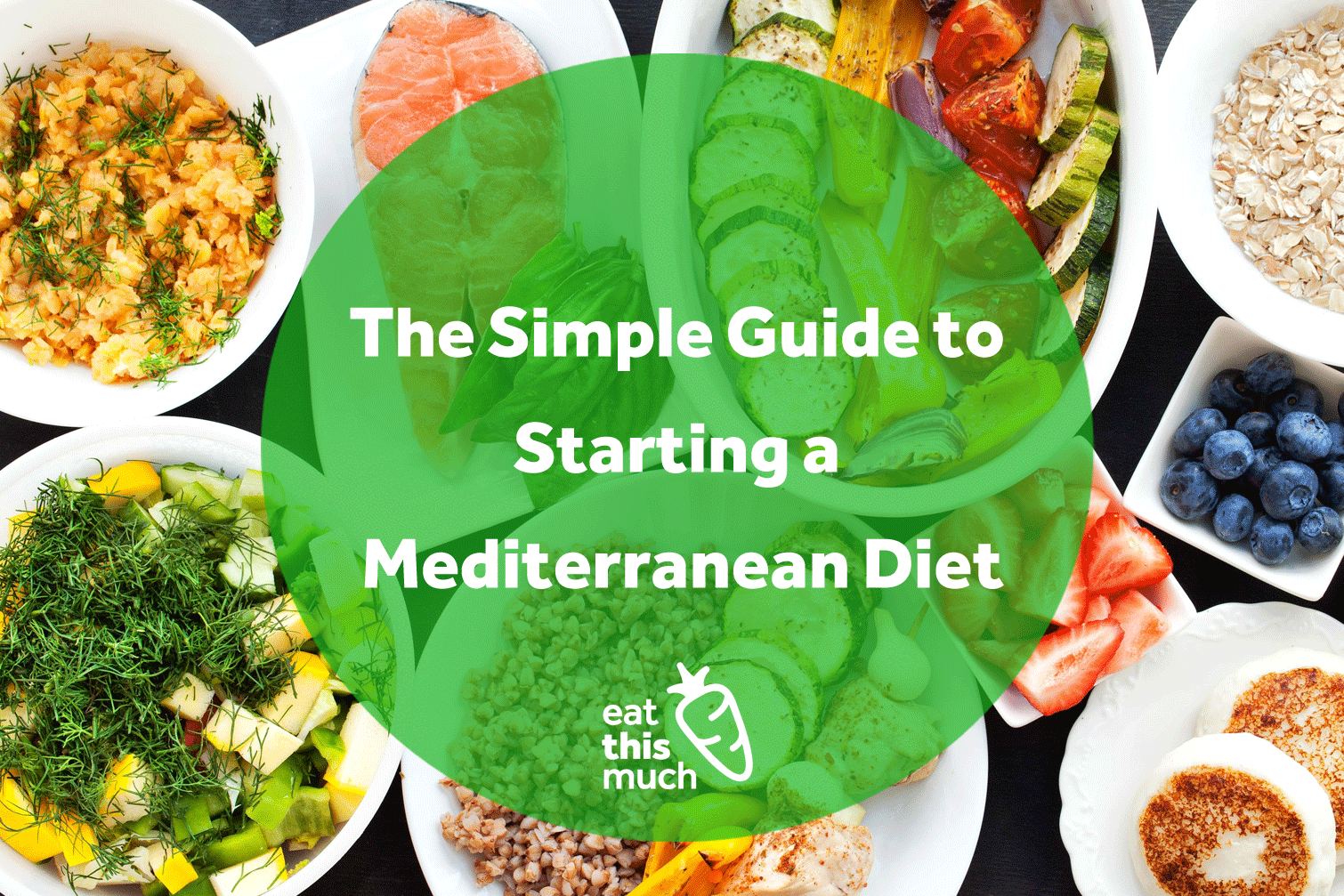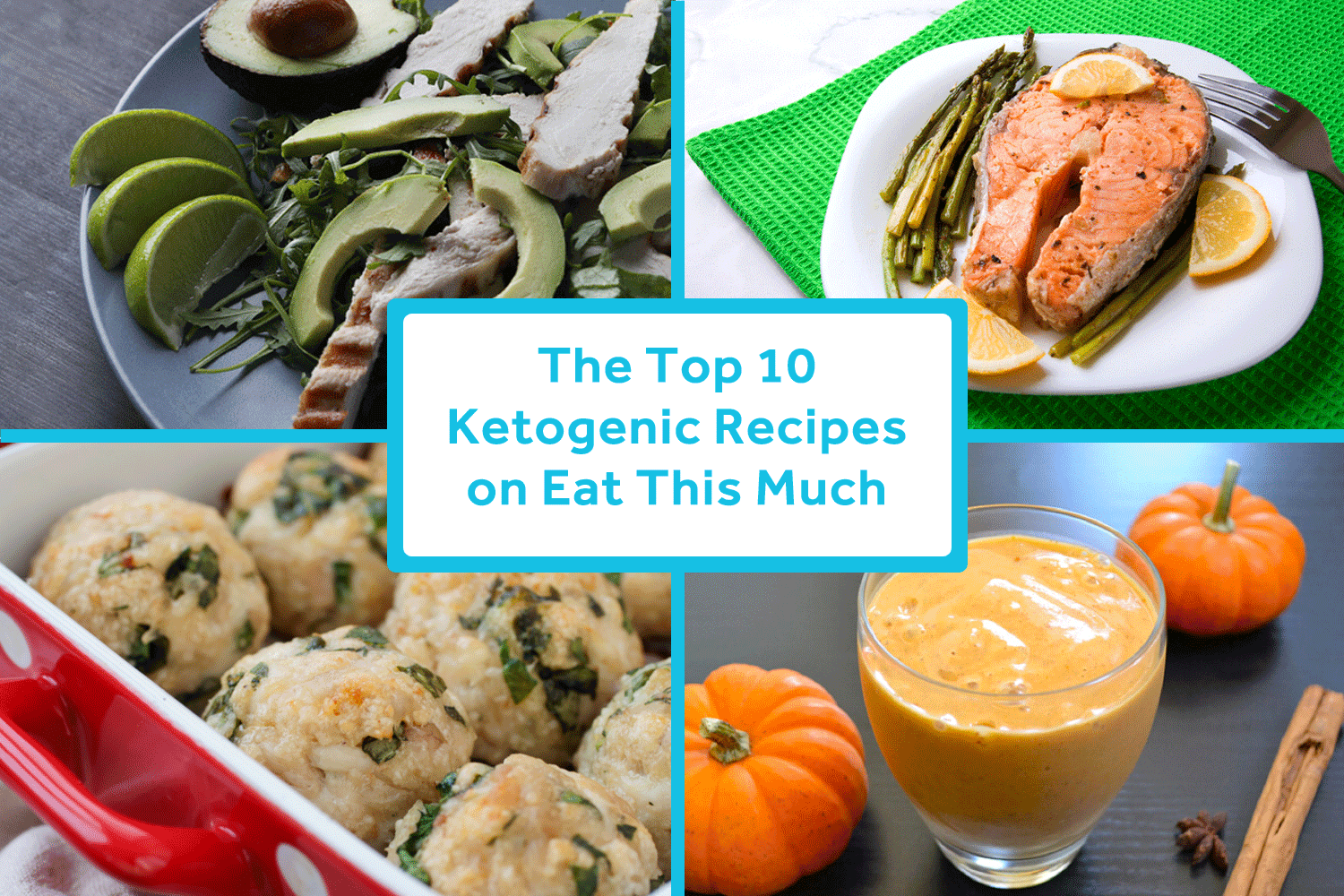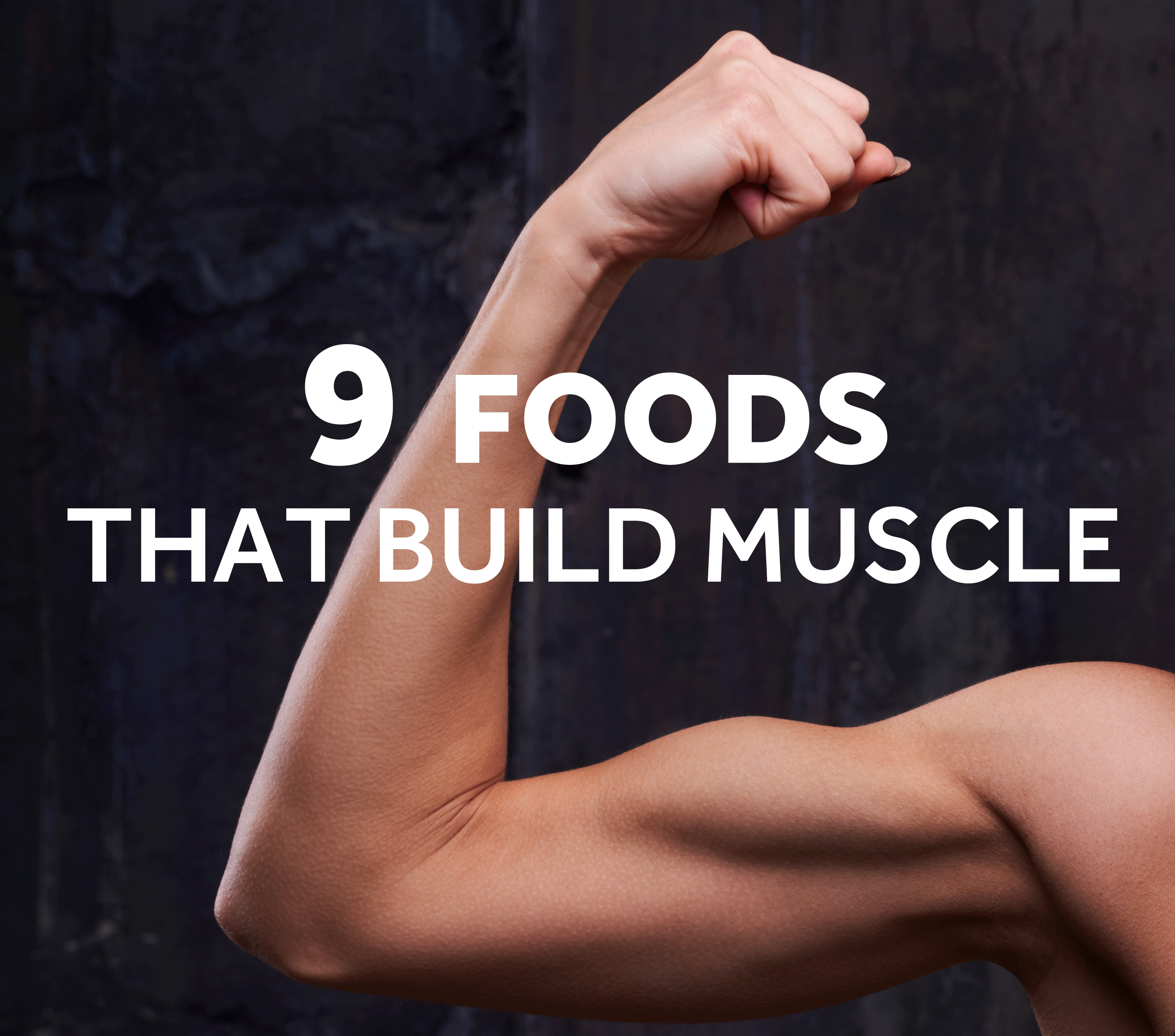 We talk a lot about weight loss on this blog, so let’s switch things up and discuss the value of developing and supporting your body’s lean muscle mass. Meal planning, along with knowing which foods support the muscle building process, can make a huge difference in your efforts to get stronger. But before we list those foods out, let’s quickly cover WHY anyone would want to eat a diet that supports muscle growth.
We talk a lot about weight loss on this blog, so let’s switch things up and discuss the value of developing and supporting your body’s lean muscle mass. Meal planning, along with knowing which foods support the muscle building process, can make a huge difference in your efforts to get stronger. But before we list those foods out, let’s quickly cover WHY anyone would want to eat a diet that supports muscle growth.
First, the more muscle you have, the higher your resting metabolic rate. Building and maintaining lean muscle mass means you’ll burn more calories doing nothing. Who doesn’t love getting something while doing nothing?
Second, building muscle reduces your risk of injury in the short run and reduces your risk of developing osteoporosis later in life. Think of it as an insurance policy for your body as you age.
Third, feeling and looking stronger will probably make you a happier. Lifting heavier weights, moving your own furniture, carrying all your groceries in one trip and seeing muscle tone develop can all do great things for your confidence and self esteem.
<– A quick word about this guy. Lifting weights and eating to support your muscles alone WON’T make you look like him. If you’re a woman, you probably don’t have enough testosterone to support such mass, so please, don’t let images of bulky or manly physiques scare you away from strength training and eating well. On the other hand, if this is your goal, you might need genetics on your side in addition to a strict diet and exercise regimen. Don’t get down on yourself if you never get there.
Now, let’s talk about the best foods to add to your meal plan if you want to help keep your muscles strong. The idea here is to fuel your body with the protein (more specifically, amino acids), fats and complex carbohydrates that are most likely to help your muscles rebuild after a workout.
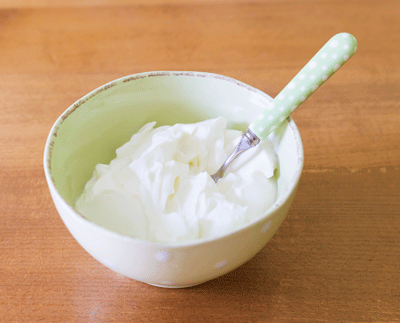 Nonfat Greek Yogurt – When you’re tired of eating eggs for breakfast but don’t want to skimp on protein, this is the answer. It also contains beneficial probiotics that will help your gut stay healthy and happy.
Nonfat Greek Yogurt – When you’re tired of eating eggs for breakfast but don’t want to skimp on protein, this is the answer. It also contains beneficial probiotics that will help your gut stay healthy and happy.
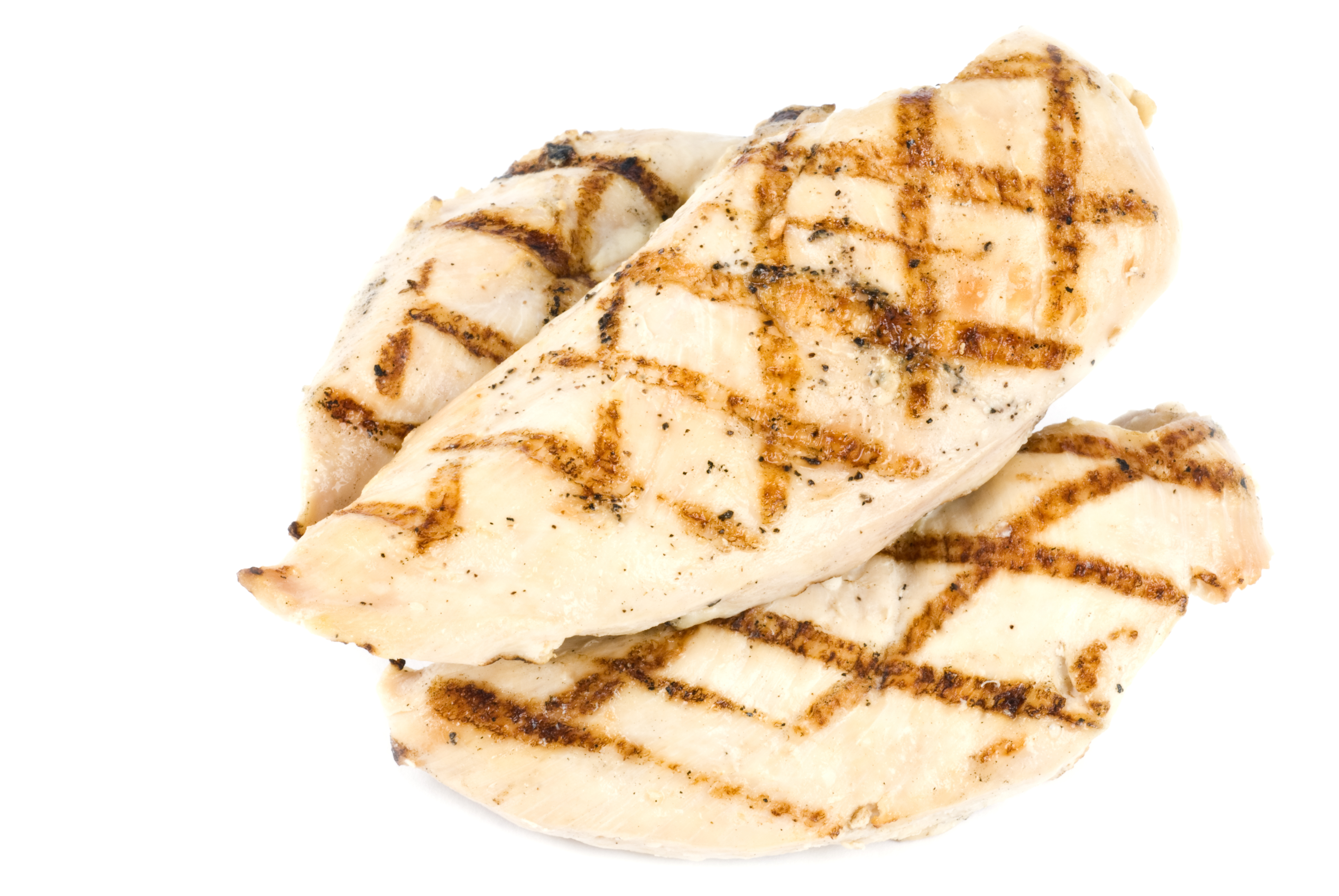 Boneless Skinless Chicken – This is the universal go-to of high-protein, lower calorie, lower fat foods. It’s easy to make and can fit into a variety of recipes.
Boneless Skinless Chicken – This is the universal go-to of high-protein, lower calorie, lower fat foods. It’s easy to make and can fit into a variety of recipes.
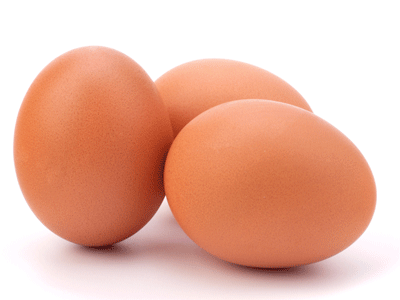 Eggs – Eggs are called a near perfect source of protein because they provide eight of the nine essential amino acids your body needs to build and repair muscle. Have you seen our recipes for frittatas?
Eggs – Eggs are called a near perfect source of protein because they provide eight of the nine essential amino acids your body needs to build and repair muscle. Have you seen our recipes for frittatas?
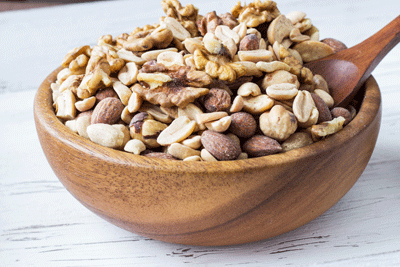 Nuts – These are a great source of protein, healthy fats and vital nutrients. Look to almonds, pistachios and peanuts that are unsalted for a quick, convenient, muscle supporting snack.
Nuts – These are a great source of protein, healthy fats and vital nutrients. Look to almonds, pistachios and peanuts that are unsalted for a quick, convenient, muscle supporting snack.
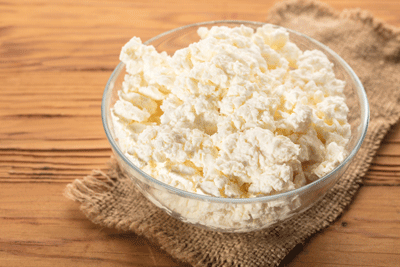 Cottage Cheese – Much like greek yogurt, cottage cheese is a great alternative protein source. It’s full of casein protein, a super slow digesting protein that the pro’s recommend eating before bed.
Cottage Cheese – Much like greek yogurt, cottage cheese is a great alternative protein source. It’s full of casein protein, a super slow digesting protein that the pro’s recommend eating before bed.
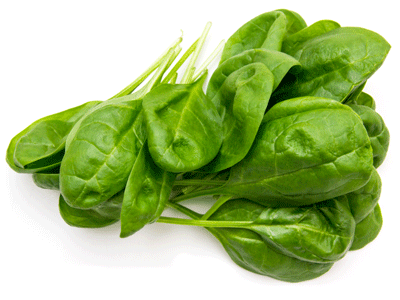 Spinach – Spinach is a good source of the iron, magnesium, and the amino acid glutamine, which helps build muscles. There have also been studies done that link the nitrate found in spinach to faster, stronger muscle responses.
Spinach – Spinach is a good source of the iron, magnesium, and the amino acid glutamine, which helps build muscles. There have also been studies done that link the nitrate found in spinach to faster, stronger muscle responses.
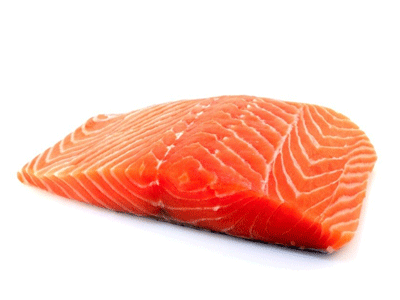 Salmon – It’s lean, full of healthy fats and delivers plenty of protein at a lower calorie count than other meats. Let’s not forget the zinc, calcium and other important minerals it provides. (Try to buy “wild,” instead of farmed, if you can.)
Salmon – It’s lean, full of healthy fats and delivers plenty of protein at a lower calorie count than other meats. Let’s not forget the zinc, calcium and other important minerals it provides. (Try to buy “wild,” instead of farmed, if you can.)
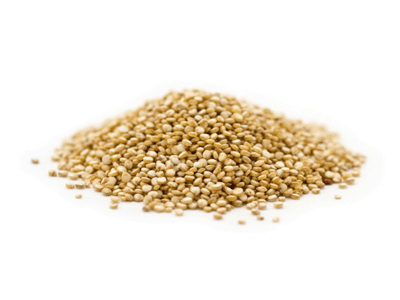 Quinoa – This tiny grain is one of the only foods that provides all nine essential amino acids in each serving. It’s also versatile enough to fit into breakfast, lunch and dinner.
Quinoa – This tiny grain is one of the only foods that provides all nine essential amino acids in each serving. It’s also versatile enough to fit into breakfast, lunch and dinner.
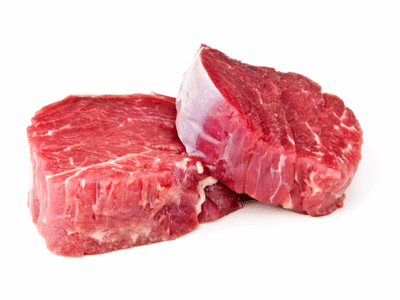 Grass Fed Beef – Compared to grain fed beef, grass fed beef is lower in cholesterol, higher in healthy omega fats and still packs a ton of protein per serving. It’s also a good source of iron which is necessary for healthy muscles and bones.
Grass Fed Beef – Compared to grain fed beef, grass fed beef is lower in cholesterol, higher in healthy omega fats and still packs a ton of protein per serving. It’s also a good source of iron which is necessary for healthy muscles and bones.

